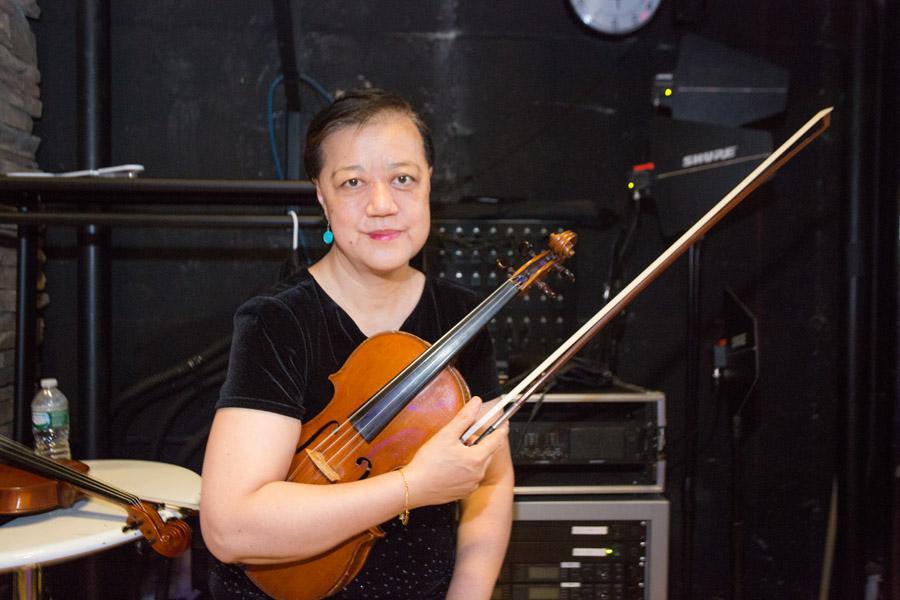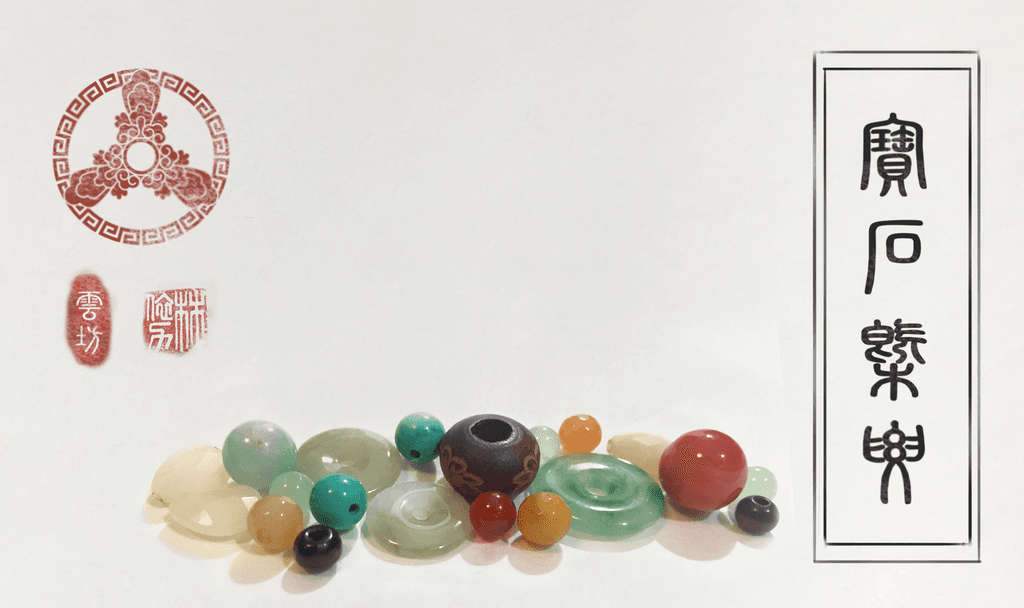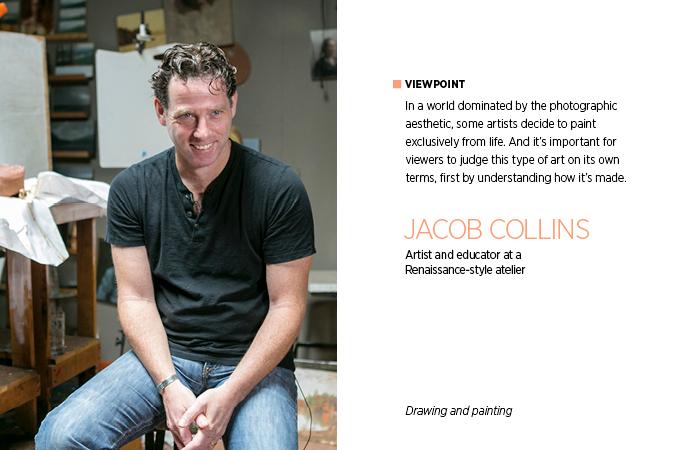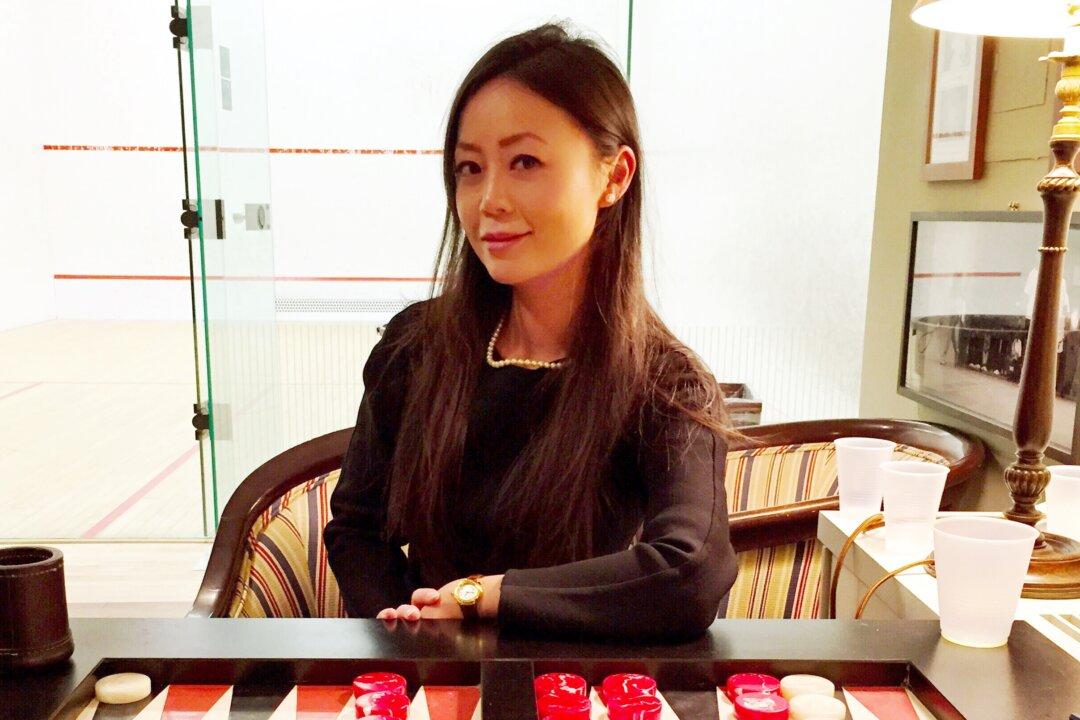ROCKVILLE CENTRE, N.Y.—Nothing is as adorable as the sight of small children performing pizzicato in unison (or almost in unison).
Family and friends packed into the Madison Theatre at Long Island’s Molloy College on June 15 for a very out-of-tune, very endearing performance by the Kinder Orchestra, most of whose members are under the age of 6.
One of the children, a violist, brought out the wrong music. The entire concert hall waited for five minutes until someone found the right folder. As an adult assisted in this task, music fell out of another child’s folder, to the great mirth of everyone.
All this took place at the 45th Annual Spring Concert of the Children’s Orchestra Society. COS is a nonprofit that holds a significant place in the community as a nurturing place where young people can find their potential via music.
A Music Education Haven
COS was founded in 1962 by Dr. Hiao-Tsiun Ma, father to Yo-Yo Ma and Dr. Yeou-Cheng Ma. His daughter Yeou-Cheng is COS’s current executive director.
What started out as an 18-member ensemble consisting of her father’s private students—including Yo-Yo Ma—has grown into more than 200 members and comprising four orchestras, a chamber music department, a chorus, musicianship classes, and private lessons in piano, guitar, and all orchestral instruments.
The curriculum focuses on ensemble playing, which fosters team spirit. To accommodate students of varying skill level, teachers write simplified passages of music so that everyone can participate. As they progress and expand their repertoire, students can choose from a wide variety of ensembles that suit their interests and needs.
This sort of child-centered music education is rare in today’s schools, which—if they keep a music program at all—has become increasingly standards-based, according to a 2010 Americans for the Arts report.
“With the crisis in the economy, people cut the arts first,” Yeou-Cheng Ma said. “Some schools no longer teach music, so we’ve gotten a few students who come here because they can’t find a program at their school.
A study from the University of Arizona of string instrument education in U.S. public schools shows that the number of teachers has declined while student enrollment has increased. Almost 25 percent of the schools in the 1999–2000 academic year and over 43 percent of the schools in 2000–2001 were not able to find qualified teachers for their string programs, the study showed. There’s no evidence that this trend has slowed.
Another of the challenges, Ma said, is that children these days have so many activities that they barely have time to practice their instrument.
“They’re pulled in so many directions,” she said.
With full support from the staff and alum, COS provides an immersive, mixed-age environment where young people can focus fully on the music.
“We give the children many opportunities, so they can strive to go the highest [level] they can go. We give them opportunities to play solos in orchestras. They know they have to work very hard to do that.”
Music’s Transformative Power
Music education’s positive impact on childhood development is well-known. For young children, it develops motor skills, memory, and coordination. It boosts academic achievement in math and language. For adolescents, it teaches perseverance and creativity. At all ages it builds a sense of personal achievement, accountability, and community.
That said, not all music education is created equal. COS enjoys a particularly collegial atmosphere.
“I went to many other student orchestras when I was younger,” said violinist Kevin Shue. “For many orchestral programs, the students come, play the music, and go home. And that’s it. There is no connection between the students, but here everyone becomes friends. One of the managers here grew up with me as well.”
Shue is now a COS conductor and a director of education for the New Asia Chamber Music Society. He’s made solo appearances at Carnegie Hall and Lincoln Center.
Of course not every COS student goes on to a career in music like Shue did. Ma remembers one Herculean effort by a student who later entered the demanding field of medicine.
“I had a student who was very shy, and very bad at taking auditions,” she said.
This student decided to switch from violin to viola one week before an audition while everyone else had two weeks to prepare. After she failed the audition, Ma asked the judges to give her one more week to prepare.
“I told the student: ‘Do you still want to do it? The judges say you have very far to reach the goal. It’s like going from 5th grade math to 11th grade math in one week. It’s almost impossible. But as your teacher, I will help you to the extent that I can.’”
The student woke up at 5:30 a.m. to practice every day, and made the cut. She ended up performing with Yo-Yo Ma in a COS concert.
“Today she is a neuroscience doctor who still plays,” Ma said proudly.
COS is an organization built on long generations. The school itself was passed down from father to daughter; alums become teachers; entire families grow up with it.
Lesley Stackler has three children who performed in the June 15 show—a boy of 14, a boy of 13, and a girl of 10. They play violin, double bass, and cello, respectively, in three different orchestras. Stackler’s oldest son started lessons in the Kinder Orchestra at age 4.
“They’ve grown up here,” Stackler said. “This is the type of organization that wants to raise a complete musician, and they really care about each child. … It’s competitive by nature, but here they learn that graciousness and team work is much more important than the seat you have.”
For more information about the Children’s Orchestra Society: childrensorch.org
With reporting by Amelia Pang, Epoch Times Staff






